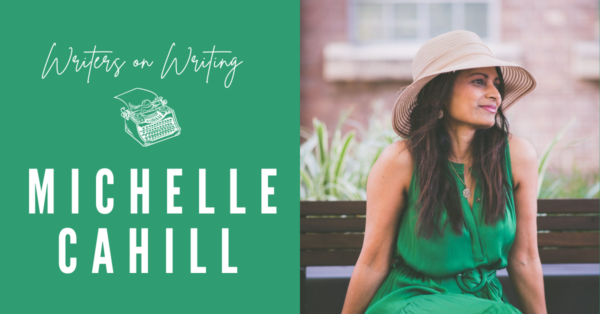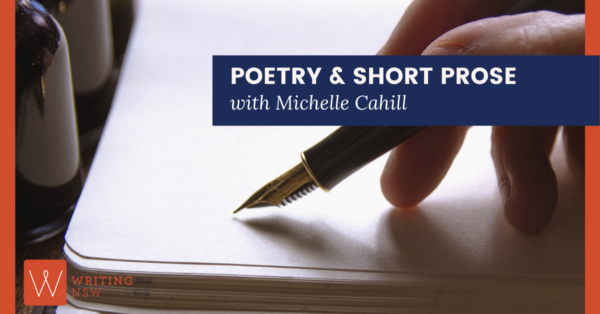
You just released your debut novel Daisy and Wolf. How does your approach to writing poetry differ from your longer work?
Thank you for this question; to ponder this question is a pleasure as it takes me into the inspired space of creative practice, a portal into the methods and the craft which is really a flow of creativity marked by production. Stories, poems, or books are published, and work is performed. People remember the books, and as authors we get attached to our books, but it is really the flow of creativity that sustains the writer and the writing life.
Poetry is accessible in our daily life because it is a shorter form. The end and the beginning can be traversed in a single reading. A poetry practice can be flexible with having a conventional job. Poems can share our parenting and relationship demands. We have to compromise more with prose.
When I write poems it is all about hearing the lines, even if only partially. It’s about becoming attentive, slowing the mind to create space for a poem to breathe. I am in dialogue with mystery, time, and with space. I want my thoughts to be connected but also free. The writing of poetry is concentrated, there is a tension and a purity about that dimension. The space of poetry is also a healing one, a necessity and an indulgence like a drink of cold water on a sweltering day. Poetry is distinct from prose writing because of this listening. Poems observe, they react to their subject(s), to the mood of the speaker, or they react to other poems; they can improvise voice, they can make up their own proverbs and philosophies, they can be a walking track into the wilderness, they can be an escalator in a shopping centre, or a process of thinking.
Sometimes I’ll dedicate a day to writing a poem and see what happens. Sometimes it might come together in a few hours, but it might take a couple of days. Some poems will take months. Interruptions can actually serve the poetry making process well. Workshopping is also very helpful. The response of other readers is invaluable since it is often hard to see or hear the weak parts of writing. As writers we have blind spots.
Writing a novel or short story is less contemplative than poetry because a story follows a sequence of actions and you want that energy and dynamism to inhabit the sentences from an early stage. A story or a novel is quite a different process to poetry because you are living with the writing for weeks, months and sometimes years as it goes through various drafts, working with editors and publishers. At the same time, you are living your own life, repeating basic daily rhythms, physical and social routines, feeling the frustrations of obligations, paid work, distractions, the joys and pull of ordinary desires. Life, illness and death keep happening around you, and time isn’t stopping for you or for your novel-in-progress. Somehow all this life becomes a subtext; I would even say it becomes another voice.
My process is organic; though there is some structure. Every writing piece takes its own path to completion, in a way. Writing is never boring. For me there are times when writing a story, a collection of stories, or a novel simply takes over and I give it exclusive priority.
If possible, I would recommend making time for creative work through formal residencies. I wrote the first Daisy and Woolf chapters at the Arvon Foundation at The Hurst in Shropshire. Being there, gave me space to find Daisy’s voice. I also spent a few weeks at Varuna, the Writers Centre, and a few months in a remote coastal area of South Australia. For prose writing, having space and solitude, being away from industry allows the imagination to relax, so it can go where it needs to go.
Your course engages with writing poetry about “everyday life.” How do everyday moments, snippets, and sense inspire your work?
How is it possible for us to witness war in Ukraine, the killing of Palestinians, Aboriginal deaths in custody, climate change emergencies, cyclones and floods, What does it mean to watch videos exposing domestic or racial violence, or read about BIPOC women disclosing abuse, or their loss of human rights? We cannot witness and not want to express or perform/transform our shame, distress, even to record our complicity in a capitalist system of corporate theft, commodification, energy waste, media spin and oppression.
I am often inspired by bizarre incidents in media, news or browsing social platforms be they curious, chilling, brutal, or terrible. Often they are simply intriguing and they bring a slice of the real into my writing. They also make me pause and consider aspects of what it means to live with justice and with respect towards others and towards nature. Or they might make me question my role as a social being and a witness. As a writer I might encounter these facts as enactments of culture, so these could be strands in a poem; usually they are more like strands rather than a core.
Other times just the movement, time running through the day can inspire me. Or possibly the chance divergence away from routine forays into unfamiliar experiences. These unexpected places, moments and events intensify and reset my perceptions. It is as if my perceptions are childlike where everything is experienced as new, and this is when I write at my best, when there is some kind of reprieve from the mundane; when the imagination is refreshed.
Of course, just by setting aside a writing time during the day can provide its own resources. I might write a few lines, sentences or paragraphs freely by being mindful, observing my emotions, or objects in the room such as furniture or plants, or the scene outside, and weaving this with thoughts, memories, anticipations. This can be prose or it can be a poem. There is always so much freedom to choose and the fun of experimenting. Make time for your writing and you will create a poem or a piece of flash fiction with no trouble. And it might even be fun!
Which writers or poets are most influential to your practice?
I read more for enjoyment more than influence. To mention just some authors and books that I do admire: Ellen Van Neerven, Max Porter’s Grief is the Thing with Feathers, Mark Antony Cayanan’s Unanimal, Counterfeit, Scurrilous is superb, Pam Brown’s Stasis Shuffle, Alice Oswald’s, Falling Awake, Natasha Trethewey’s Domestic Work, Akwaeke Emezi’s The Death of Vivek Oji.
I’ve recently loved Helene Gaudy’s A World Without Shore which retraces the North pole exploration of Nils Strindberg and his lover, Anna.
Join Michelle’s workshop, Poetry & Short Prose, on Saturday 30 July 2022, 10am-4pm. Enrol here.

If you want to be the first to read great advice from our incredible tutors, subscribe to our weekly e-newsletter Newsbite.
More from Writing NSW
Check out our full range of in-person writing courses in Sydney, our online writing courses and our feedback programs to see how we can help you on your writing journey. Find out about our grants and prizes, as well as writing groups across NSW, and sign up to our weekly newsletter for writing events, opportunities and giveaways.
